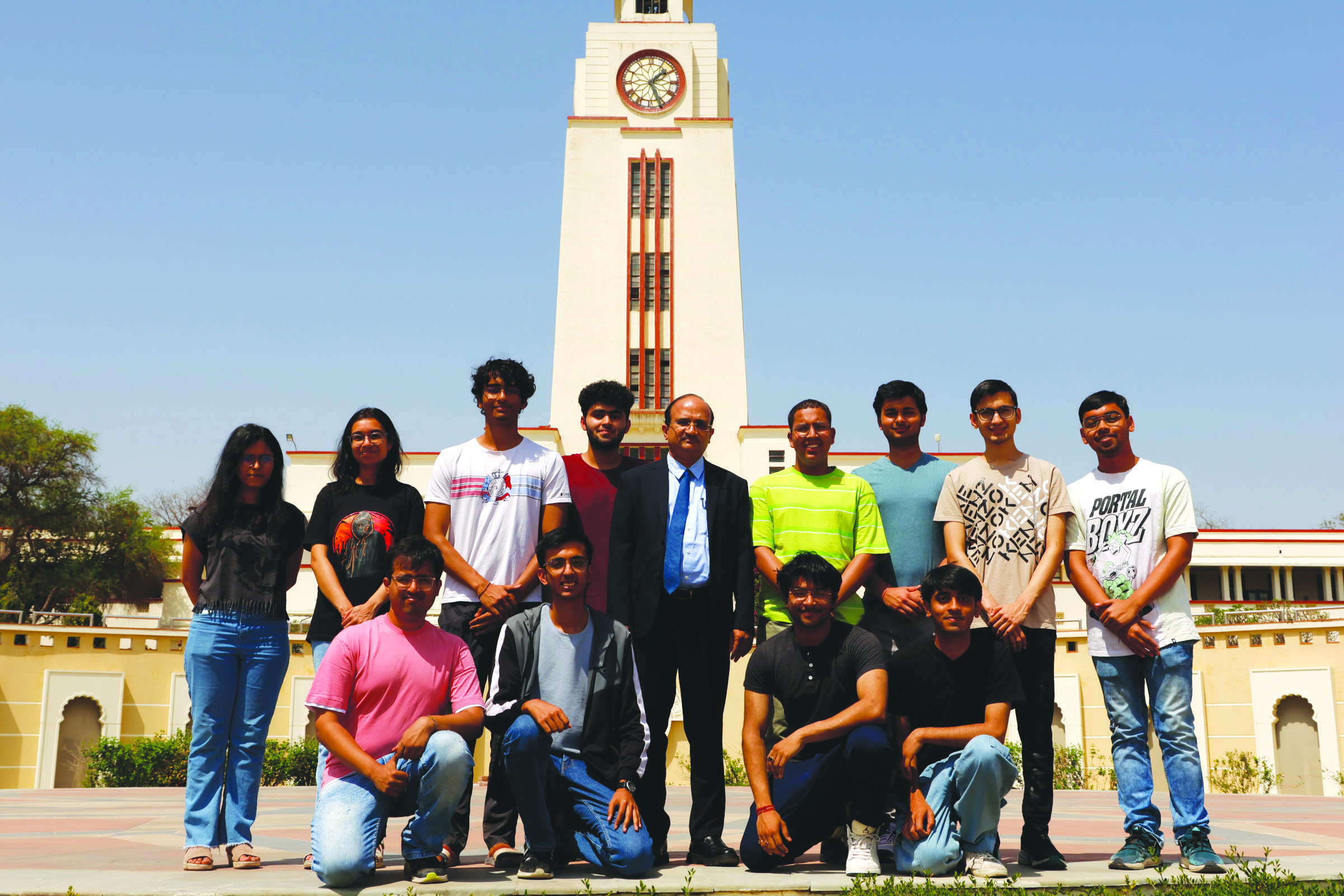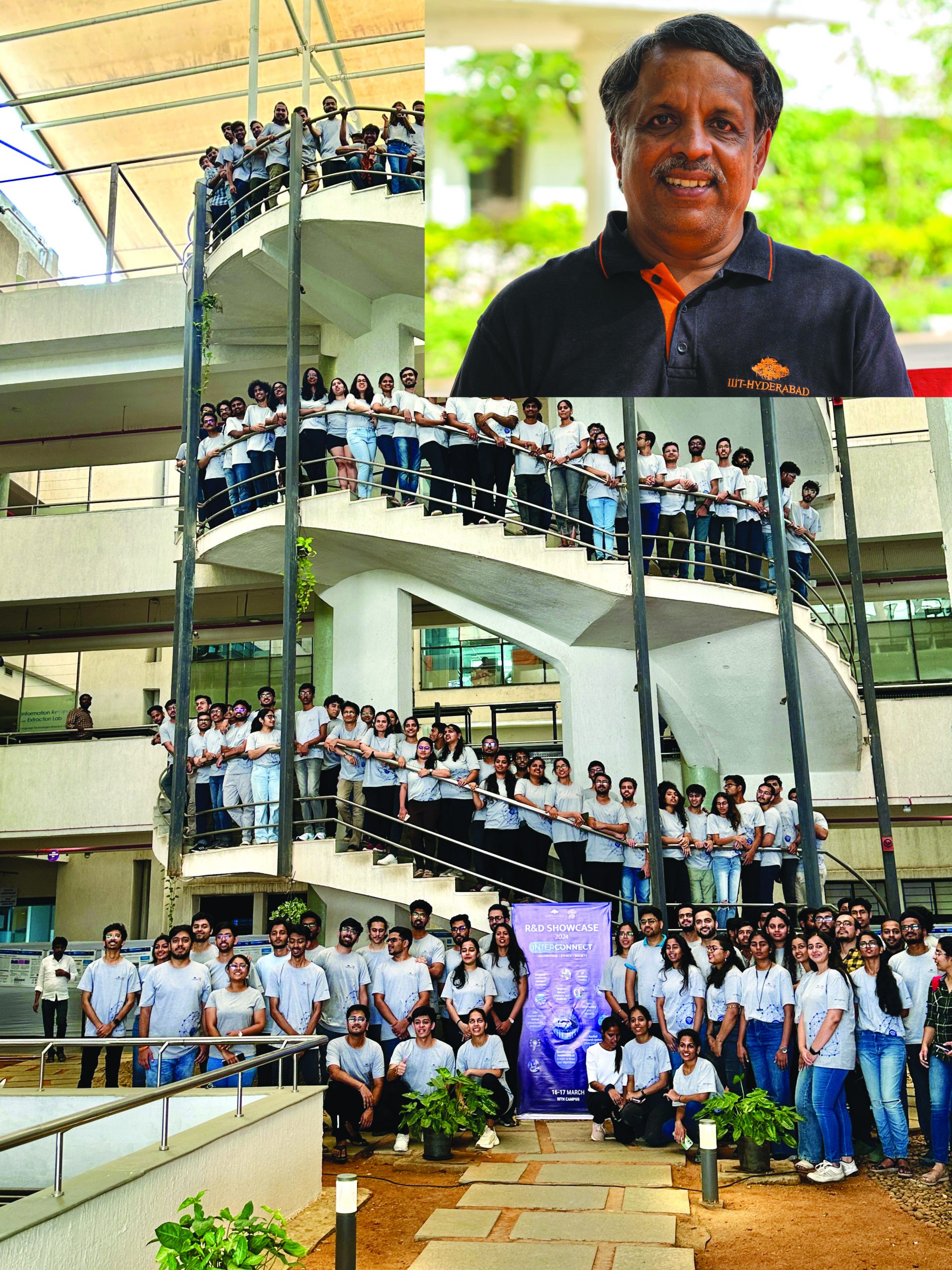Although it is commonly accepted that the IITs and NITs provide the best engineering undergrad education, since they admit a mere 2-3 percent of aspirant school-leavers, the public interest is better served by ranking undergrad private engineering colleges which constitute 70 percent of all engineering institutions countrywide, writes Dilip Thakore.
 India’s engineering higher education institutions — especially the older six IITs (Indian Institutes of Technology) — are the country’s pride and joy. The IITs whose number has grown to 23 in recent years are renowned worldwide because several dozen CEOs including Google’s Sundar Pichai are IIT graduates as are numerous start-up founders in Silicon Valley, California.
India’s engineering higher education institutions — especially the older six IITs (Indian Institutes of Technology) — are the country’s pride and joy. The IITs whose number has grown to 23 in recent years are renowned worldwide because several dozen CEOs including Google’s Sundar Pichai are IIT graduates as are numerous start-up founders in Silicon Valley, California.
Curiously, most economists and academia pundits see nothing amiss in planeloads of IIT graduates — whose education in these premier institutes of engineering and technology is heavily subsidised by taxpayers (including poor villagers) — migrating abroad. The annual exodus of IIT grads is viewed with cool equanimity by them. Their rationale is that the dollar remittances of emigres to families in India and exchanges with their counterparts in academia — even perhaps their eventual return back home — may well become a “brain gain” for India. The option of taking the hard road and devising policies and creating conducive conditions to plug this massive brain drain from the country is seldom entertained, except by your editors (see https://www.educationworld.in/educationworld-current-issue/educationworld-november-2023/).
However, the IITs and the country’s 31 NITs (National Institutes of Technology) which also provide quality, highly-subsidised engineering and technology education to next best students who write the annual IIT-JEE (joint entrance exam), repeatedly topped the initial EducationWorld league table of engineering colleges/universities. But they admit a mere 2-3 percent of the 1.2 million school-leavers who write the annual IIT-JEE (joint entrance exam).
Therefore in 2016, your editors decided to eliminate IITs, NITs and government-owned engineering colleges from the annual EducationWorld India Higher Education Rankings (EWIHER). The reasoning was that since these institutions are routinely top-ranked in all league tables published by government, Indian and foreign media, and they admit just a thin 2-3 percent of school-leavers aspiring for undergrad engineering education, the public interest would be better served if we ranked India’s next best private engineering colleges which admit the overwhelming majority of engineering aspirants. In this connection, it’s noteworthy that over 70 percent of India’s engineering HEIs (higher education institutions) are privately promoted.

BITS-Pilani vice chancellor Dr. Ramgopal Rao: research and incubation powerhouse
Against this backdrop, we commissioned the Bangalore-based AZ Research Partners Pvt. Ltd (estb.2010) to constitute and interview a representative database of 2,100 sample respondents comprising vice chancellors, faculty, industry leaders and senior students in colleges and universities to rate India’s most reputed private engineering institutions under nine parameters of higher education excellence. The parameters: leadership and governance; faculty welfare & development; faculty competence; curriculum & pedagogy; industry interface; research & innovation; infrastructure; placement of graduates and value for money that students derive.
The parameters were given differing weightages (maximum scores attainable) with faculty competence accorded highest weight (350). Scores awarded by sample respondents under each parameter were totaled (maximum attainable: 2,300) to rank Top 100 private engineering colleges.
Somewhat surprisingly although this year the field interviews were conducted by our new partner AZ Research, the EWIHER 2024-25 league table of India’s Top 100 engineering colleges reflects only marginal changes compared with last year (2023-24). In the Top 10 table, there are minor seating re-arrangements. This indicates there’s a broad consensus within academia and industry about India’s best private engineering colleges, which are closing the gap which separates them from the IITs/NITs.
Although for mysterious reasons ranked a modest #25 in the Union education ministry’s NIRF (National Institutional Ranking Framework) 2023, the Birla Institute of Technology & Science (BITS)-Pilani (estb.1964) is routinely top-ranked in the annual EW league table of India’s Top 100 most admired engineering institutions.
This year, it is ranked #1 for the second year consecutively followed by the low-profile International Institute of Information Technology (IIIT)-Hyderabad (estb.1998) which was top-ranked in 2022-23. The Vellore Institute of Technology (VIT) has retained its #3 ranking of 2023-24, Dhirubhai Ambani Institute of Information, Communication & Technology, Gandhinagar (Gujarat) is ranked #4 (cf. 3 in 2023-24) and PSG College of Technology, Coimbatore (4) and Manipal Institute of Technology (6) are jointly ranked #5 this year.

IIIT-Hyderabad students: combination edge. Inset: Dr. P.J. Narayanan
The 2024-25 Top 10 table is completed by R.V. College of Engineering, Bengaluru jointly ranked #6 (6) with Thapar Institute of Engineering & Technology, Patiala (5); Mahindra University’s Ecole Central School of Engineering, Hyderabad #7 (5); SSN College of Engineering, Chennai #7 (7); BMS College of Engineering, Bangalore #8 (7); Hindustan Institute of Technology & Science, Chennai also #8 (9); Shiv Nadar University, Noida #9 (8); Birla Institute of Technology, Mesra (8) and Amrita School of Engineering, Coimbatore (10) jointly ranked #10 in 2024-25.
Prof. V. Ramgopal Rao, an alum of IIT-Bombay and Universitat der Bundeswehr, Munich (Germany) and former director of IIT-Delhi, who took charge last year as Vice Chancellor of BITS-Pilani which has established five campuses including in Dabolim (Goa), Mohali (Punjab) and Dubai and has an aggregate 18,000 students mentored by 470 faculty, is unsurprised by the top rank awarded to this institute by EW sample respondents year after year.
“Within academia and industry from where your sample respondents are drawn, BITS-Pilani’s record as a research powerhouse and incubator of start-ups is well-known. Over the past few years, 6,400 BITS-Pilani alumni have founded start-ups valued at $60 billion of which 15 are unicorns. Our research output cited in reputed refereed journals is among the Top 5 in India. Moreover, the median remuneration awarded to our graduates is Rs.20-22 lakh. Within academia and industry, BITS-Pilani is commonly placed on a par with the best IITs,” says Ramgopal Rao, who attributes the institute’s modest NIRF ranking to its “low profile in government circles”.
Rao believes that the institute’s USP (unique selling proposition) is its strong connect with industry and its rigorous internships and “practice schools” programme in which students can work in industry for an entire semester before graduation. “One of the infirmities of Indian higher education is that it tends to be too theoretical. Our highly successful internship and longer duration practice schools programmes prepare our students to become job-ready and hit the ground running when they graduate,” says Rao.
Although the International Institute of Information Technology, Hyderabad (IIIT-H estb.1998) ranked India’s #1 private engineering college in 2021-22 has been pipped at the post for the second year in succession, Dr. P.J. Narayanan, an alum of IIT-Kharagpur and University of Maryland (USA) and director of this deemed university, is not dissatisfied with the outcome. That’s because on every parameter of engineering education excellence including leadership except research & innovation, IIIT-H has been awarded higher scores than the top-ranked BITS-Pilani.
“Over the two decades past, as a deemed university, we have independently devised a robust syllabus and curriculum, become financially independent and established a good reputation for the high-quality graduates we prepare for industry. Our curriculum is designed to incorporate a strong IT (information technology) component in all the subjects we teach, and not only faculty, but students too are encouraged to become research and innovation focused. This combination is important because computerisation of all subjects and vocations is the trend of the future. Every sector of the economy is becoming increasingly digitalised, which gives our graduates an edge in workplaces of the future,” says Dr. Narayanan. Currently, IIIT-H (annual tuition fee: Rs.4 lakh) has 2,000 students mentored by 110 faculty. Average starting salary for graduates: Rs.26 lakh per year.

MIT, Manipal director Dr. Anil Rana (centre right): research familiarity advantage
A notable feature of the EW 2024-25 league table of private engineering colleges is that all institutions ranked within the Top 10 last year have either retained or marginally ceded a rank. Only two of the Top 10 ranked colleges have risen in the 2024-25 rankings — Manipal Institute of Technology (Karnataka) promoted to the Top 5 (from #6 last year) and Hindustan Institute of Technology & Science, Chennai voted #8 (9). Despite the high profile of its modish vice chancellor Dr. S. Vaidhyasubramaniam, SASTRA University, ranked #11 has lost its top table seat.
“It’s a matter of pride for us that MIT, Manipal is ranked among India’s Top 5 private engineering colleges despite our somewhat remote location. In particular, I am very satisfied that your knowledgeable sample respondents have given us a high score under the parameter of research and innovation. This is a critical focus area for us. We believe that it is in the best interests of students to transform into innovative self-directed learners for which early familiarity with research methodology and processes is very important. In MIT-Manipal, we have recently built a new Rs.50 crore state-of-the-art Centre for Instrumentation to familiarise our students with the tools and technologies required for cutting-edge research. Moreover, in collaboration with blue-chip corporates including Schneider Electric, Reckitt Benckiser and Janyu Technologies, we have established Centres of Excellence for advanced electronics, biology, industrial robotics and cyber-security. We are engaged in creating a knowledge application culture to translate research into commercial products useful for industry and society,” says Dr. (Cmdr) Anil Rana, the institute’s highly qualified (Naval Engineering College, Lonavla, IIT-Delhi, IIT-Bombay) director, who served with the Indian Navy for 30 years prior to taking charge at MIT-Manipal in 2021.
Beyond the Top 10, several colleges have risen in the esteem of the knowledgeable public. Among them: Sai Sriram Engineering College, Chennai ranked #22 (cf. 25 in 2023-24); Institute of Technology of Sikkim Manipal University, Gangtok #26 (29); Kalinga Institute of Industrial Technology, Bhubaneswar #31 (34); Heritage Institute of Technology, Kolkata #35 (37) and Rungta College of Engineering & Technology, Bhilai #45 (49). Beyond the Top 50, a large number of private engineering colleges has suffered a sharp drop in this year’s EW league table.
Moreover, it should be borne in mind that engineering colleges modestly ranked nationally may well be powerhouses in their host states some of whom are larger and more populous than many European countries. For instance, the Bharatiya Vidya Bhawan’s Sardar Patel College of Engineering, Mumbai, ranked India #18 is #1 in Maharashtra (pop.112 million), Amity School of Engineering & Technology of Amity University ranked India #19 is #2 in Uttar Pradesh (pop.215 million); and Heritage Institute of Technology, Kolkata, India #35 is #1 in West Bengal (104 million). For school-leavers who don’t want to travel far for undergrad studies, state rankings assume great significance.























